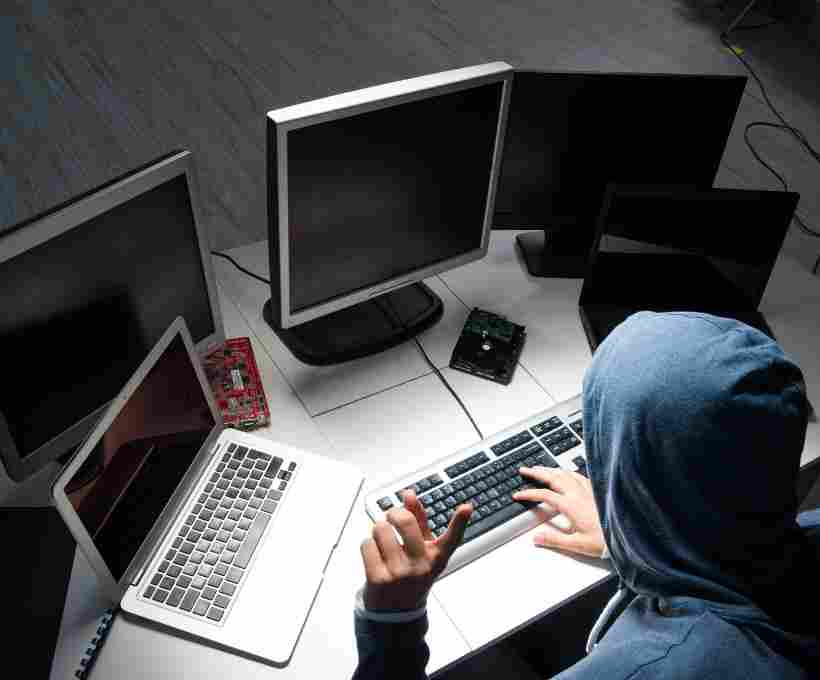Choosing a career is never easy. Some people follow traditional paths like medicine, law, or finance, while others feel drawn to more unconventional fields. In today’s digital-first world, one of the most exciting, challenging, and rapidly growing professions is ethical hacking.
But the big question is—who is best suited for a career in ethical hacking?
Not everyone can thrive in this field. It takes a special blend of technical knowledge, problem-solving ability, creativity, and an ethical mindset. In this blog, we’ll dive deep into the characteristics, skills, and personality traits that make someone a strong fit for a career in ethical hacking. We’ll also explore the realities of the job and guide you through the mindset shift needed to succeed.
What is Ethical Hacking?
Before identifying who’s best suited, let’s first understand what ethical hacking is.
Ethical hacking is the process of legally breaking into computer systems, networks, applications, and digital infrastructures to find vulnerabilities before malicious hackers can exploit them. Ethical hackers, also known as white-hat hackers or penetration testers, are the “good guys” of cybersecurity.
They use the same tools and techniques as cybercriminals but with permission, responsibility, and a clear objective: to strengthen security.
Ethical hackers are the digital guardians of modern businesses, governments, and individuals. From testing a banking app’s security to securing IoT devices, they ensure that technology remains safe for everyone.
Why Personality Matters in Ethical Hacking
Unlike some fields that only rely on technical education, ethical hacking requires much more. It’s not just about coding or memorizing tools—it’s about how you think, act, and approach problems.
In fact, many great ethical hackers are self-taught enthusiasts who developed their skills out of curiosity and persistence rather than formal education.
This means personality traits and mindset play a massive role in determining success. Let’s explore the qualities and backgrounds that are best suited for this career.
1. The Naturally Curious Mind
At the heart of every great ethical hacker is curiosity.
If you’ve ever wondered:
- “What happens if I click this hidden button?”
- “How does this software really work?”
- “Can I find a loophole in this system?”
…then you might already think like a hacker.
Curiosity is what drives ethical hackers to dig deeper, explore hidden structures, and test systems from every angle. They aren’t satisfied with surface-level answers; they want to understand the “why” and “how.”
This relentless curiosity separates average IT professionals from world-class ethical hackers.
2. Problem-Solvers and Critical Thinkers
Ethical hacking is like solving digital puzzles every day.
Imagine trying to bypass a login screen, crack into a server, or simulate a phishing attack without getting caught. To do that, you need more than just knowledge—you need critical thinking.
Ethical hackers excel at:
- Breaking big problems into smaller parts.
- Thinking from both an attacker’s and defender’s perspective.
- Finding multiple paths to a solution.
- Staying calm under pressure when things don’t work the first time.
If you enjoy riddles, strategy games, or brainstorming creative solutions, you already have a hacker’s mindset.
3. People Who Love Continuous Learning
Cybersecurity is not static. Every day, new vulnerabilities, exploits, and attack methods emerge.
A system that was secure yesterday may be wide open to attack today. This means ethical hackers must constantly update their knowledge.
If you’re someone who loves to:
- Read about the latest tech news.
- Experiment with new tools and software.
- Enroll in online courses and certifications.
- Stay ahead of digital trends.
…then ethical hacking might be your calling.
Those who hate studying or feel uncomfortable with ever-changing knowledge may find this career overwhelming.
4. People with Strong Ethical Values
Here’s where many people misunderstand ethical hacking.
Just because you know how to hack doesn’t mean you can use your skills however you want. The difference between an ethical hacker and a criminal hacker is intent and values.
Ethical hackers must be:
- Honest and trustworthy (organizations share sensitive data with them).
- Responsible (a single misstep can cause financial or reputational damage).
- Law-abiding (they work within legal boundaries).
If you’re someone who values integrity and wants to use your skills for good—protecting individuals, businesses, and society—then you’re suited for this career.
But if you’re tempted to misuse hacking knowledge for personal gain, this is not the right profession for you.
5. Tech Enthusiasts with a Passion for Security
Ethical hacking requires a solid foundation in technology. While you don’t need to be a coding genius, you should at least:
- Understand how operating systems work (especially Linux and Windows).
- Be comfortable with networking concepts (TCP/IP, firewalls, VPNs, etc.).
- Learn basic programming (Python, JavaScript, or Bash scripting).
- Be curious about cybersecurity principles.
If you already enjoy tinkering with computers, building apps, or setting up servers for fun, you’re more likely to thrive as an ethical hacker.
6. People Who Stay Calm Under Pressure
In many cases, ethical hackers simulate real-world cyberattacks against organizations. Sometimes, they even work during live security breaches to help contain the damage.
This environment can be stressful. Deadlines are tight, risks are high, and stakes involve millions of dollars.
That’s why the best ethical hackers are people who stay calm under pressure. Instead of panicking, they analyze the situation, strategize, and execute their plan with precision.
7. People Who Think Like Attackers
To stop a hacker, you must think like one.
Ethical hackers don’t just learn defense—they study the mindset of malicious hackers. They ask:
- How would I break this system if I were an attacker?
- Where would I look for vulnerabilities first?
- What tricks would I use to fool users?
This adversarial mindset is critical. It allows ethical hackers to predict attacks before they happen and build stronger defenses.
If you naturally enjoy thinking outside the box, spotting loopholes, or finding shortcuts, you already think like an attacker.
8. Team Players Who Can Communicate Clearly
Contrary to the stereotype, ethical hackers don’t always work alone in a dark room. They often collaborate with IT teams, managers, developers, and even non-technical staff.
That means communication is essential. The best ethical hackers can:
- Explain complex security risks in simple terms.
- Write clear reports of their findings.
- Work with teams to fix vulnerabilities.
- Educate users on best practices.
So, if you can balance technical skills with people skills, you’ll stand out in this field.
9. Those Who Want a Future-Proof Career
If job stability and growth matter to you, ethical hacking is an excellent choice.
Cybersecurity jobs are among the fastest growing in the world, with millions of unfilled positions. Ethical hackers are in demand everywhere—from startups to Fortune 500 companies, from government agencies to international NGOs.
This makes ethical hacking a great fit for people who want:
- Long-term career security.
- Opportunities for international work.
- High-paying job offers.
- Freelancing or consulting possibilities.
10. People Who Enjoy Freedom and Flexibility
Unlike many traditional jobs, ethical hacking offers unique flexibility. Many professionals work remotely, take on bug bounty programs, or freelance as security consultants.
If you enjoy working on your own terms, ethical hacking can provide:
- Remote work opportunities.
- Freedom to choose projects.
- The chance to travel while working.
It’s perfect for those who don’t want to be tied to a desk in a 9–5 job.
Who Should Avoid a Career in Ethical Hacking?
To be fair, ethical hacking isn’t for everyone. You may struggle in this career if you:
- Dislike continuous learning.
- Get easily frustrated by failure (hacking often involves trial and error).
- Prefer routine and predictable work.
- Lack patience for detailed analysis.
- Are tempted to misuse your skills.
It’s better to be honest with yourself before investing time and energy in this field.
How to Know if You’re a Good Fit
Here’s a quick self-test:
- Do you love solving puzzles and challenges?
- Do you stay curious about how systems and apps work?
- Do you enjoy experimenting with technology?
- Do you feel excited about protecting people and organizations?
- Do you stay calm and focused when faced with complex problems?
If most of your answers are “yes,” then you’re probably best suited for ethical hacking.
Pathways to Becoming an Ethical Hacker
If you recognize yourself in the qualities above, here’s how you can get started:
- Learn the Basics – Networking, Linux, cybersecurity fundamentals.
- Pick a Programming Language – Python is the most popular.
- Practice Hands-On – Use labs like Hack The Box, TryHackMe, or your own test environment.
- Get Certified – CEH, OSCP, CompTIA Security+, etc.
- Build a Portfolio – Document your bug bounties, projects, and learning.
- Start Small – Freelance or entry-level jobs before moving to big roles.
Final Thoughts
So, who is best suited for a career in ethical hacking?
The answer isn’t just “computer experts.” It’s people with the right mindset—curious, persistent, ethical, and problem-solving individuals who thrive in a constantly evolving digital world.
If you see yourself in these qualities, ethical hacking could be your dream career. It offers not only financial rewards but also the satisfaction of making the digital world safer for everyone.
The world needs more ethical hackers. The question is—are you ready to become one?





